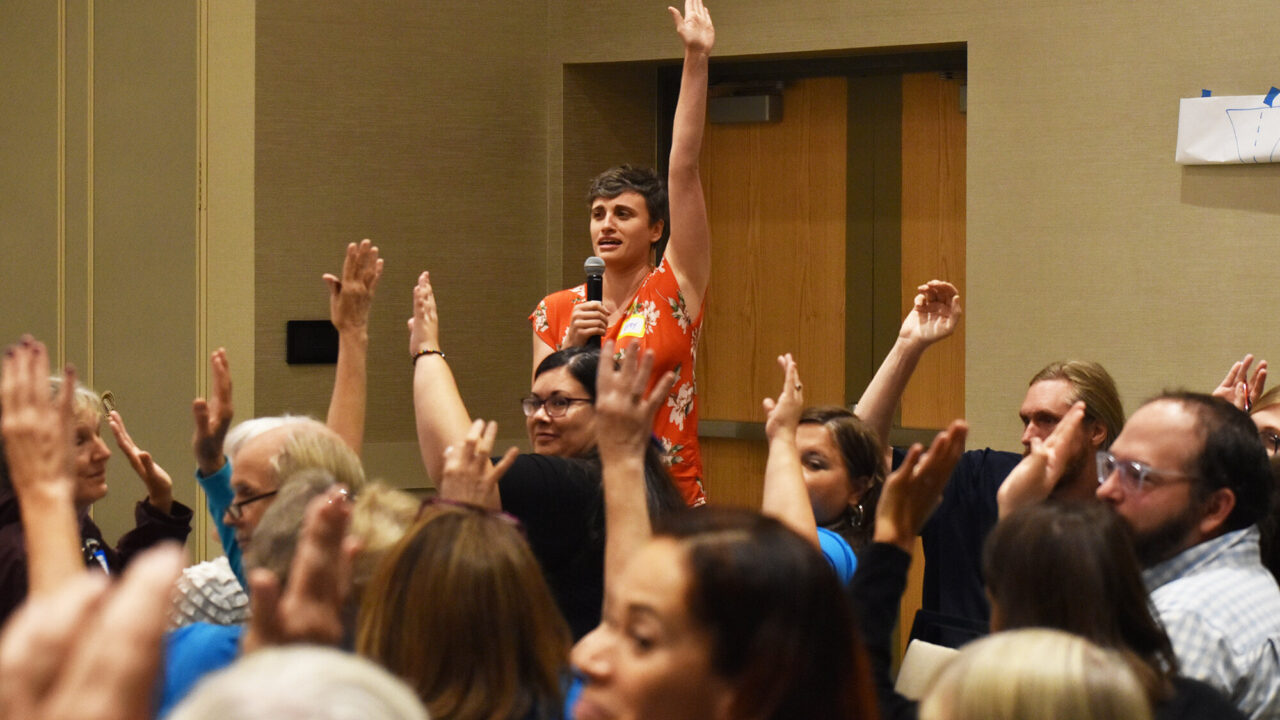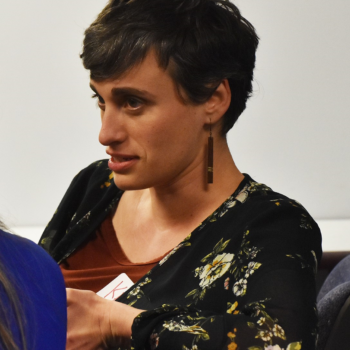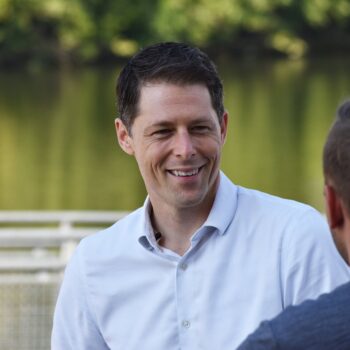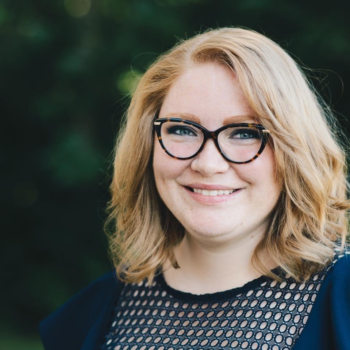Last spring, West Virginia Can’t Wait transformed our gubernatorial campaign’s field operation into a COVID response team. For ten weeks, our 397 strongest GOTV volunteers became Neighborhood Captains helping voters access food, absentee ballots, and unemployment benefits. We built the Neighborhood Captain program on the fly and in response to an acute crisis. But the program ended up outperforming conventional voter turnout programs — forever changing the way our movement will run electoral campaigns.
WV Can’t Wait is a two-year-old movement organization that aims to win a people’s government in the Mountain State. The 2020 primaries marked our first foray into electoral organizing. We recruited and supported 101 candidates for office, from the city council to the governorship. We ran candidates on any ballot line so long as they signed our Candidate Pledge: never accept corporate cash, never cross a picket line, never punch down, and never hide from a debate.
Before the pandemic hit, we conducted 197 town halls, which led to a New Deal for West Virginia, a platform with 34 detailed plans that are popular among West Virginians but have been rejected by both major parties. Our gubernatorial candidate quickly tripled the previous record for small dollar donors.
Just as we were gaining steam, COVID hit. With just a little more than two months before the primary, we gathered our staff and volunteers to reimagine the whole campaign.
The pandemic created three problems for grassroots campaigns like ours. First, it made many forms of grassroots voter contact, such as door-knocking and town halls, nearly impossible. Second, the pandemic stretched the capacity of our volunteers, many of whom faced acute crises (children to take care of, jobs lost). Our friends and neighbors were also in crisis; they needed reliable access to food, medicine, unemployment benefits, and information.
But the pandemic also created an opportunity: West Virginians wanted a way to lend a hand.
Out of this crisis emerged the WV Can’t Wait Neighborhood Captain program — an effort to get out the vote for our candidates in the primaries while also providing voters a friendly neighbor to help them access information on how to meet their basic needs. We ran the program through our gubernatorial campaign but introduced voters to our entire slate of candidates.
WV Can’t Wait recruited 397 Neighborhood Captains over about a month’s time; each took responsibility for corresponding with an assigned batch of one hundred voters in their county, a combination of Democrats and Independents, high and low frequency voters. Each volunteer sent introductory letters in hand-addressed envelopes, made follow-up calls a week later, texted reminders about absentee ballots, made another round of check-in calls, and sent handwritten postcards. Volunteers began their relationships with voters by offering to connect them to local aid and information, such as how to access food, medicine, or unemployment benefits, but they also attempted to build real relationships by asking voters open-ended questions about their lives. The program aimed not just to turn people out or help them through a pandemic but to craft new political relationships that could last beyond the election and the crisis.
The Neighborhood Captain program drove tens of thousands of West Virginia voters to online resources, and many of our captains offered food delivery and other direct services themselves. One of our Raleigh County captains helped a neighbor re-negotiate her electric bill.
The most common need our captains identified was the logjam in the state’s unemployment assistance program. A captain in Mercer County encouraged us to start a “Where’s My Unemployment Check?” Facebook group, which still provides mutual aid and information to workers. Captains were encouraged to refer particularly challenging or notable cases directly to our gubernatorial candidate, who personally connected more than two hundred voters to the head of the state’s unemployment program for assistance. Five months later, he still receives five-to-ten calls each week.
Unlike most political campaigns, WV Can’t Wait spent two years building political infrastructure before the heat of election season. We relied heavily on 397 highly-skilled, highly-trained, highly-coordinated volunteers, whom we recruited to our movement long before we began GOTV. Without the nearly 200 town halls and house meetings, countless leadership trainings, and volunteer vetting that preceded the pandemic, we would not have had such a deep pool of leaders or the level of trust necessary to pull the program off. We devoted four of our nine staff members to the Neighborhood Captain program. They mailed out supplies, ran nearly daily onboarding trainings, cut turf, checked in with captains by email and phone, and managed a Facebook Group where captains asked questions and traded success stories.
Smart political veterans warned us that we were trying to do too much, but our volunteers just didn’t feel right delivering a traditional “vote for our guy” message during the pandemic. As it turned out, the Neighborhood Captain program was also smart politics. Successful voter turnout programs reliably produce one-to-four percent increases in targeted voter groups. The Neighborhood Captain program dramatically outperformed those results across all groups tested. According to our initial analysis, 57.3 percent of high turnout West Virginia Independents voted in the West Virginia primaries. By comparison, similar Independents randomly selected to be a part of our Neighborhood Captain program turned out at a rate of 79.8 percent. Among low turnout Democrats, the Neighborhood Captain program increased voter participation by 15.7 percent (from 11.8 percent to 27.5 percent).
We did not include a voter identification step in our program, so we cannot know how many of these additional voters turned out for our candidates, but half of WV Can’t Wait’s candidates won their primaries. Eleven are now in office fighting for the WV New Deal. One is the first openly transgender public offical in West Virginia history; another is the first Black and youngest ever city council member in his town.
Despite the program’s many successes, we still lost the gubernatorial primary by five points to a self-funded millionaire candidate chosen by the state’s Democratic establishment. The pandemic obviously hurt us, as TV advertisements grew in importance and opportunities for direct voter contact shrunk. But we also focused too heavily on high-turnout Democrats when we stood to make greater gains with Independents and low-turnout Democrats. In addition, we didn’t include a voter identification step, which would have ensured that we were turning out voters who stood with us.
Our Neighborhood Captain program was also not as big as it needed to be to win. We reached 39,700 voters through the program — an insufficient percentage of the 192,465 votes cast. Many of our Neighborhood Captains are urging us to begin earlier in the next election cycle so that they can reach more voters and deepen their relationships with them. Others hope to expand the program by inviting voters to volunteer for local service projects, take action on legislative issues, or become Neighborhood Captains themselves. This kind of distributed organizing model would be crucial to getting the program to scale in a statewide race.
The most hopeful outcome of the program has been the continued involvement of our volunteers, nearly all of whom stayed on to campaign for WV Can’t Wait candidates in the general election. Since November 3rd, more than 300 of them have participated in the sticky, difficult strategy work of imagining our movement’s next steps — attending regional day-long strategy briefings, organizing Zoom strategy calls, completing an in-depth movement strategy survey, or nominating someone in their town (or themselves) to run for office.
Our next test will be the 2021 city council races, where we have two local teams of Neighborhood Captains gearing up to run full slates of candidates. We are excited to try out the program in races where the issues and relationships are more local, the win numbers lower, and the staff needs not so great.
We have a long way to go to win a people’s government in West Virginia. And the 2020 election results do not signal a clear path forward for pro-labor, anti-corporate candidates — in West Virginia or many other rural places. But we’re committed to continuing to fight for a new kind of politics in West Virginia. We know that the political machines we are up against don’t work for West Virginians. It is up to us to build ones that do, one neighbor at a time.
This report is based on research conducted by elections analyst Thomas Whitaker using publicly available voter data and internal volunteer spreadsheets from WV Can’t Wait and the Smith for WV campaign. We welcome the chance to trade ideas and learn from organizers in other states.



